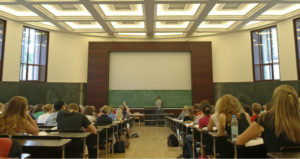
Disruptive Students: Personality Styles and Recommended Responses
In a perfect world, college students would always be eager, well disciplined, and respectful.
In the real world, some students come to class late, miss deadlines, or fall asleep during lectures. Others monopolize class time, make insulting or abusive comments, and even physically threaten or











